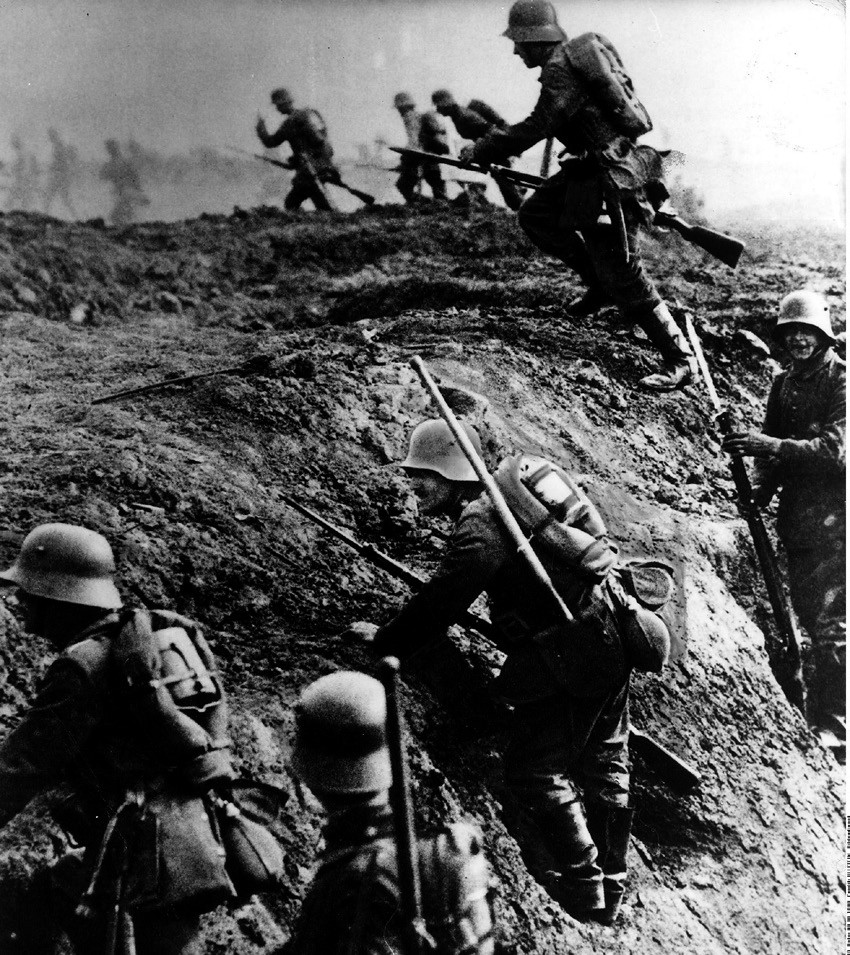The Allied victory in the First World War has often been attributed to the British-led naval blockade of Germany and the superior economic and logistical resources they possessed. Historians who support this view believe that once the Schlieffen Plan had failed and Germany was locked into a two-front war defeat was inevitable: it was a case of ‘when’ and not ‘if’. However, this viewpoint ignores the fact that Germany and its allies needed to be defeated on the battlefield if the war was to be won.
Germany dominated the Central Powers with its military strength. Its army in 1914 was larger and better trained than any Allied force and was far superior to any of its allies. The Austro-Hungarian army could hold its own against the Russian army some of the time, but was frequently defeated in the battles of the Eastern Front. It was the Germans who were responsible for the great advances of 1916–17 that pushed the Russians to revolution and the Treaty of Brest-Litovsk. The German army would have to be defeated on the battlefield if the war was to be won.
Your organisation does not have access to this article.
Sign up today to give your students the edge they need to achieve their best grades with subject expertise
Subscribe





